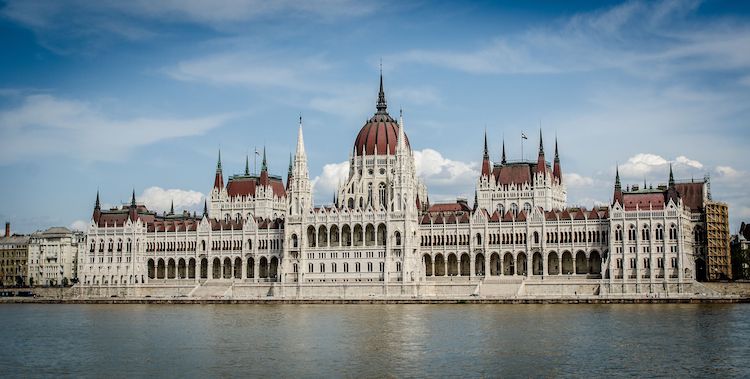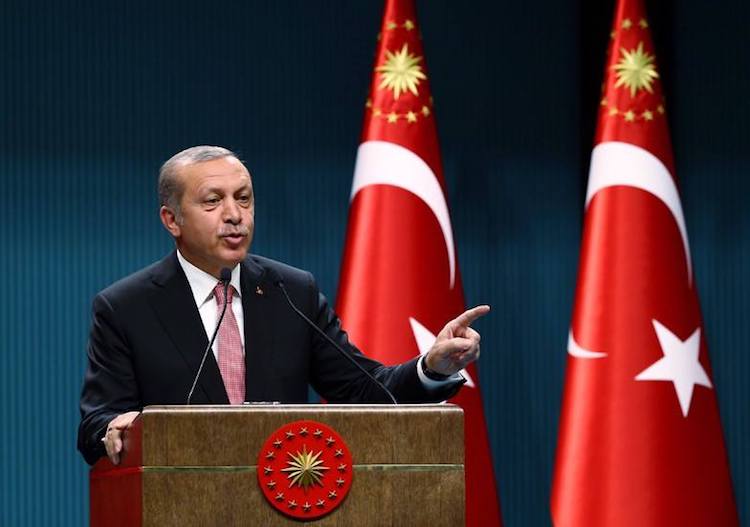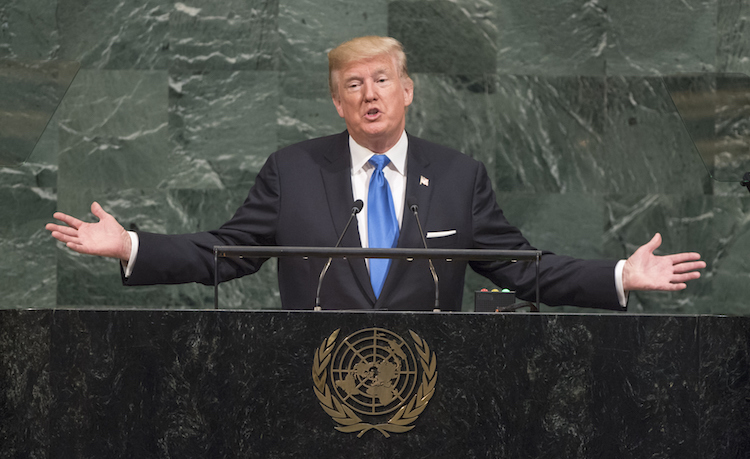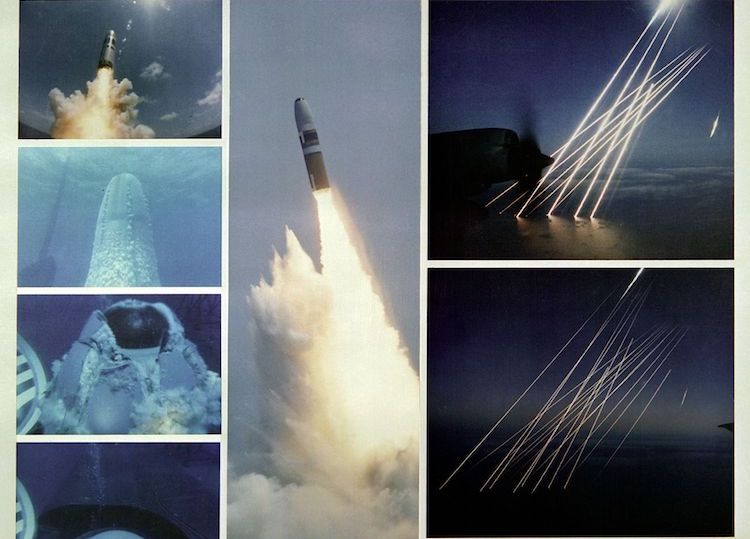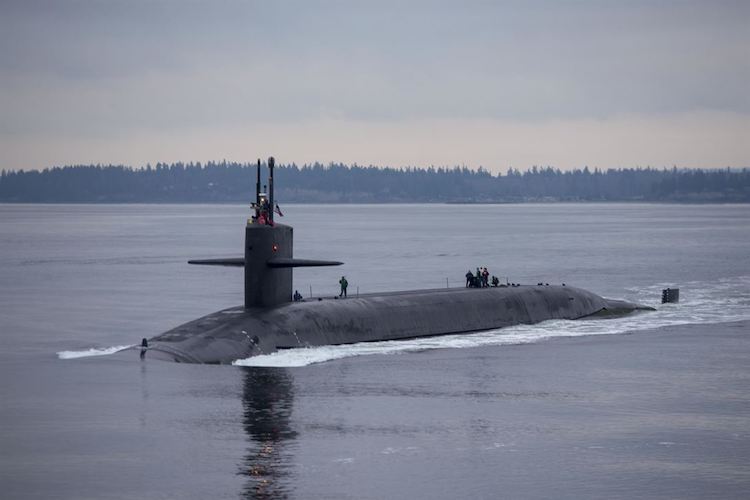By Sean Buchanan This is the second in a series of reports highlighting salient aspects of Transparency International‘s latest analysis on challenges posed by corruption around the world as well as successes and failures of efforts targeting a scourge that eats into the vitals of human rights. – The Editor. LONDON (IDN) – When it […]
Erdoğan’s Neo-Ottomanism at a Dangerous Turning Point
By Pier Francesco Zarcone* ROME (IDN) – It is not being dealt with by major media, but there appear to be new and dangerous winds of war about to blow in the eastern Mediterranean. On October 15, 2016, in a speech at the university that (modestly) bears his name, Turkish President Recep Erdoğan outlined some […]
Trump Breaks Nuclear Taboos, Strives For Supremacy
By Daryl G. Kimball and Kingston A. Reif Daryl G. Kimball is Executive Director of the Arms Control Association and Kingston A. Reif its Director for Disarmament and Threat Reduction Policy. This article appeared as Issue Brief on February 15, 2018 with the caption ‘The New U.S. Nuclear Strategy is Flawed and Dangerous. Here’s Why.’ […]
From Tlatelolco to the UN Nuclear Weapon Ban Treaty
By Jorge Alberto López Lechuga Jorge Alberto López Lechuga is Research and Communication Officer of the Agency for the Prohibition of Nuclear Weapons in Latin America and the Caribbean (OPANAL). The views expressed in this article do not necessarily reflect those of OPANAL and its Member States. – The Editor MEXICO (IDN) – On February […]
Transforming Risks on the Korean Peninsula into Stable Peace in Northeast Asia
By Katsuhiro Asagiri TOKYO (IDN) – ‘Building Stable Peace in Northeast Asia: Managing and Transforming Risks on the Korean Peninsula’ was the subject of a colloquium in which regional experts on peace and security, policy makers and civil society organizations from the United States, China, South Korea and Japan participated against the backdrop of a […]
Kick Off To A Nuclear Race Threatening Doomsday
By Sergio Duarte The writer is President of the 1995 Nobel Peace Laureate Pugwash Conferences on Science and World Affairs and a former Ambassador of Brazil who served in key posts. He was President of the 2005 Seventh Review Conference of the Parties to the Treaty on the Non-Proliferation of Nuclear Weapons (NPT), and UN […]
Why ‘Nuclear Weapons – An Absolute Evil’ Is A ‘Must-Read’
By Anne Baring* Anne Baring is a Jungian Analyst, author and co-author of the books listed on her website, including her latest one, The Dream of the Cosmos: a Quest for the Soul. She can be contacted at anne@annebaring.com. Prof. Avery’s ‘Nuclear Weapons: An Absolute Evil’ can be downloaded here. – The Editor. LONDON – […]
‘New START’ Milestone Could Help Halt Nuclear Arms Race
By J C Suresh TORONTO | WASHINGTON, D.C. (IDN) – The Arms Control Association has called for extending the 2010 New Strategic Arms Reduction Treaty (New START) set to expire on February 5, 2021. The plea follows on the heels of an announcement each by the United States and Russia that they have met their […]
Nuclear Posture Review ‘Recipe for a Disaster’, Warns Pugwash
By J Nastranis NEW YORK (IDN) – The Nobel Peace laureate ‘Pugwash Conferences on Science and World Affairs’ has warned that the latest development of U.S. nuclear weapons policy “will serve only to increase the saliency and attractiveness of nuclear weapons, and will certainly not enhance international security.” Commenting on the United States 2018 Nuclear […]
Trump Awaits a ‘Magical Moment’ to Ban Nuclear Weapons
By Shanta Roy UNITED NATIONS (IDN) – The 2018 Nuclear Posture Review (NPR), released February 2, is a dangerous departure from the past, and appears to reflect a firm U.S. commitment to readily use the world’s deadliest weapons of mass destruction – even if the United States is only a target of “significant non-nuclear strategic […]

